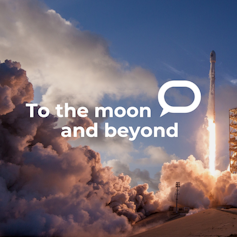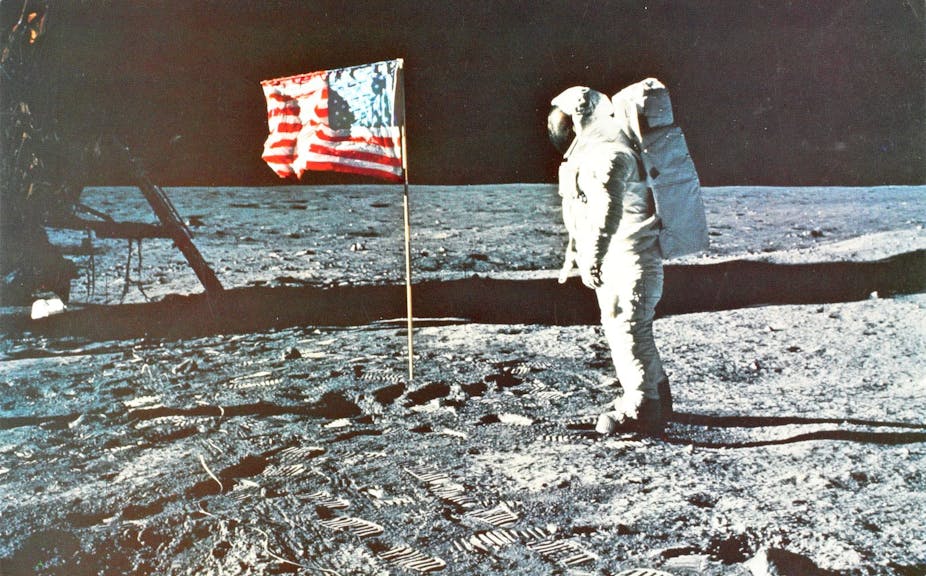Like the majority of people on the planet today, most people in our office are too young to have witnessed firsthand the Apollo 11 moon landing, which took place 50 years ago. It was a giant leap for mankind and one that hasn’t been repeated since 1972 with Apollo 17. So when we sat down six months ago to discuss the anniversary, we decided to find a way to bring this epic moment of history to life for a new generation.
We wanted to look at the moon landings in a new and interdisciplinary way. We wouldn’t just focus on the technology of the mission or the politics of the cold war space race as it was, but on how it is inspiring a whole new future of space exploration. We wouldn’t just examine the reaction in the West, but look at how people in the global south experienced it too. And we wouldn’t just repeat Neil Armstrong’s famous quote, we’d aim get right inside his head as he took his small step.
The best way to do this, we thought, was to create a podcast series – taking us from Apollo 11 in 1969 through to the moon’s role in space exploration in 2069. We wanted to hear from a range of experts – from space scientists, astronauts-turned-academics and psychologists to historians, lawyers and futurists.
But to make it really stand out, we would need to talk to a diverse range of experts from all over the world. So we decided to team up with other editions of The Conversation around the world to create our first ever global podcast.

To the moon and beyond, which launches today, is the result of this collaboration – featuring interviews with academics based in Australia, Canada, the US, the UK, South Africa, Ireland, France and The Netherlands. Hosted by Martin Archer, a space plasma physicist at Queen Mary University of London and science broadcaster, and me, we’ll be learning what impact the Apollo 11 moon landing actually had – and why we stopped going. We will also explore why it has generated so many conspiracy theories across the world.
In future episodes, we’ll also examine the new space race that has emerged, with many different countries – and private companies – competing to take people back to the moon. We’ll then travel all the way to 2069, looking at plans to use the moon as a staging post for future space exploration. This could take humans as far as Mars and the habitable icy moons surrounding the gas giant planets.
The podcast will be accompanied by a series of articles marking the 50th anniversary of the moon landings written by academics around the world who’ve dedicated their lives to studying the wonders of space.
You can listen via The Conversation, or subscribe via iTunes or Spotify, or wherever you get your podcasts from. And if you have any questions about the show, do get in touch with producers Annabel Bligh and Gemma Ware via podcast@theconversation.com. We hope you enjoy the journey.

